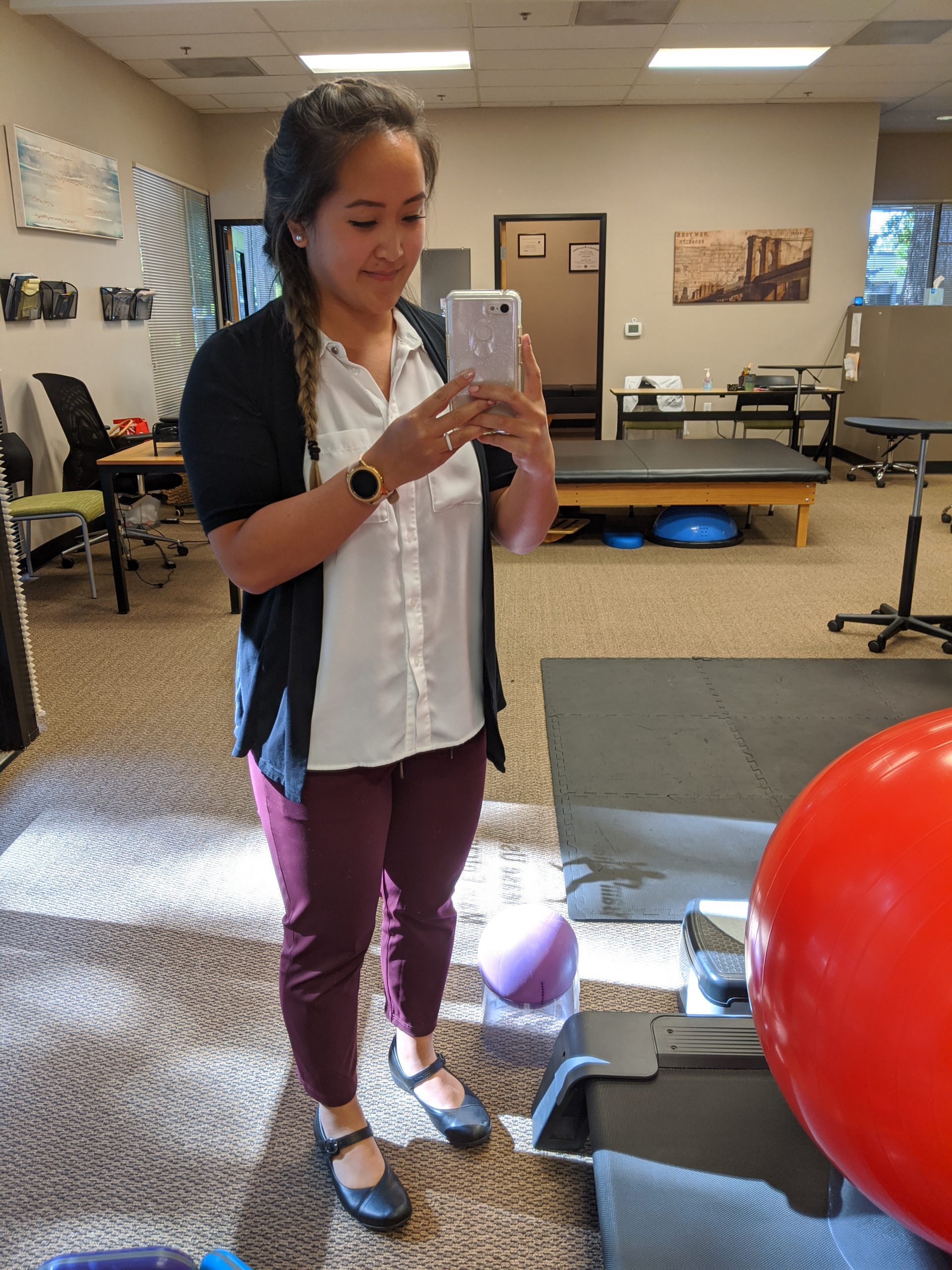Imposter Syndrome as a Physical Therapist
 I lacked confidence for the first year out of school and had a lot of anxious feelings the first six months after graduating. Was I helping my patients? Will they get better? Would they be better off with another PT?
I lacked confidence for the first year out of school and had a lot of anxious feelings the first six months after graduating. Was I helping my patients? Will they get better? Would they be better off with another PT?
These are struggles I dealt with as a new grad PT and with more experience, I’ve learned to become more confident. I was able to trial and error, observe and learn patterns, and receive feedback from PTs I looked up to.
I’ve created a list of things that helped me create a mindset for success for those struggling with Imposter Syndrome:
Be over-prepared. I spent time after work studying and getting ready for my next day of patients. And I super-extra prepared for the patients that normally weren’t on my schedule and was very nervous to treat my boss’ patients. The more prepared you are, the fewer curveballs, right? Wrong. Make sure you don’t spend too much time after work because it is still healthy to have time to decompress. So set a certain amount of time aside and try to stick to that (for example less than 45 minutes).
Play out different scenarios in your head. Before you bring patients back, think about how you’d expect them to feel after their last session and also a scene where they’re flared up. Be mindful not to put blame on your own treatment/intervention. Sometimes the patient will reveal that they did something out of your control like a household chore non-stop for 3 hours.
Tone of voice. The way you present the information carries a lot in how the patient will receive it. If you say a lot of “ums” or soft-spoken, it may come off as you’re unsure. Be mindful of how you’re saying things. Or words you emphasize on like “abnormal” or “degenerated” may generate fear.
Use more confident phrases. For example, “you have” instead of “I think you have” or “you will get better” vs “I think you’ll get better” can be perceived very differently. The patient will have more trust in you if you carry more confidence in your voice and how you say things.
Don’t act surprised when an intervention works. I’ve had it where a patient is surprised after treatment that they feel better immediately. Don’t act surprised with them (even if you are). Tell them that you expected that.
Give your patients expectations. Be clear in your communication with the patient of what you expect after an intervention. Should they expect to be sore afterward? Should they feel better? After doing a new exercise, do they know what delayed onset muscle soreness is? Giving a patient of what you’d expect, especially if it can be misinterpreted as a regression, can also build confidence with the patient in you because you predicted it was going to happen. So that way when they’re sore a couple of days later, they’ll think, “it’s okay because Pauline told me I might be sore.”
The common theme throughout confidence is clear and direct communication. We went through a lot of schooling (7 years to be exact) to earn our Doctorates in Physical Therapy. We know a lot. It’s okay to not know everything but as long as we keep reaching for resources to learn, things will be more than okay. If you’re having struggles with a patient case or want to talk more, join me for a Virtual Office Hour.
